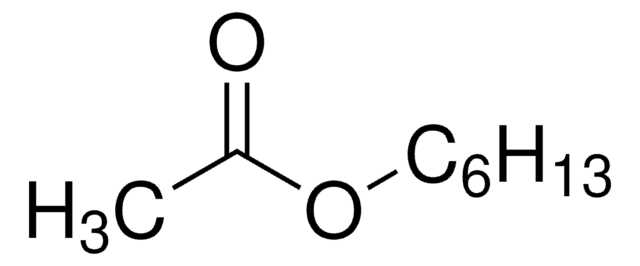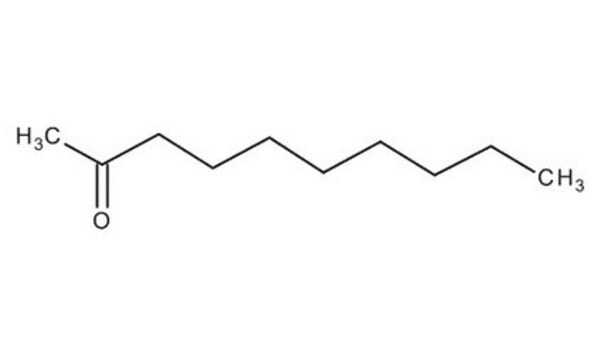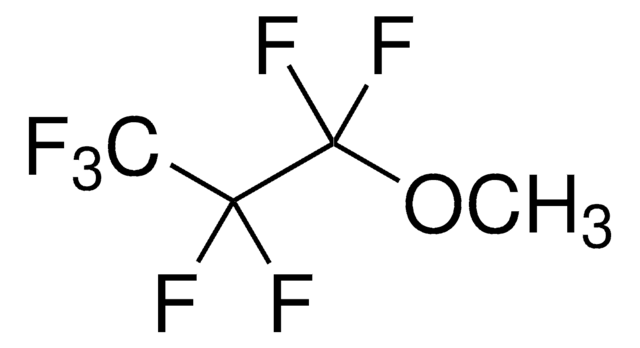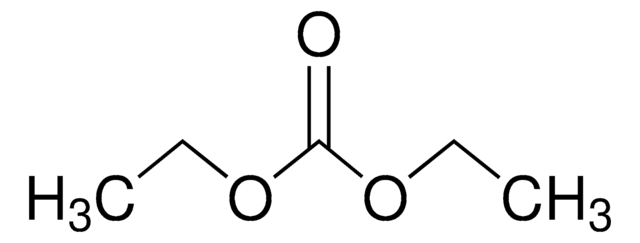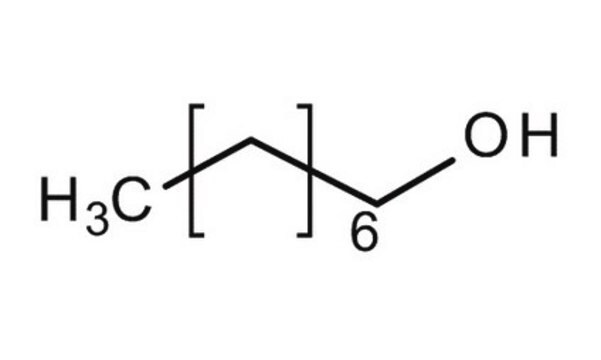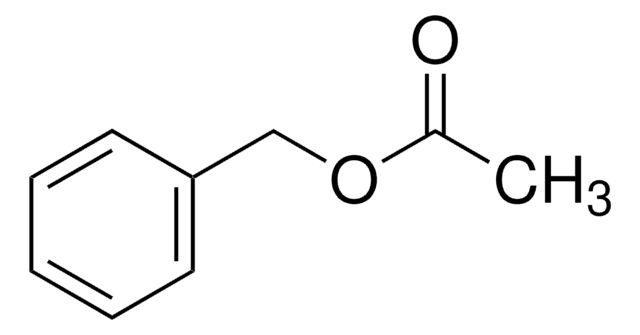O5500
Octyl acetate
≥99%
Synonym(s):
Acetic acid octyl ester
About This Item
Recommended Products
vapor density
5.9 (vs air)
Assay
≥99%
autoignition temp.
515 °F
expl. lim.
8.14 %
refractive index
n20/D 1.418 (lit.)
bp
211 °C (lit.)
density
0.867 g/mL at 25 °C (lit.)
SMILES string
CCCCCCCCOC(C)=O
InChI
1S/C10H20O2/c1-3-4-5-6-7-8-9-12-10(2)11/h3-9H2,1-2H3
InChI key
YLYBTZIQSIBWLI-UHFFFAOYSA-N
Looking for similar products? Visit Product Comparison Guide
Storage Class Code
10 - Combustible liquids
WGK
WGK 2
Flash Point(F)
189.1 °F - closed cup
Flash Point(C)
87.3 °C - closed cup
Choose from one of the most recent versions:
Certificates of Analysis (COA)
Don't see the Right Version?
If you require a particular version, you can look up a specific certificate by the Lot or Batch number.
Already Own This Product?
Find documentation for the products that you have recently purchased in the Document Library.
Customers Also Viewed
Our team of scientists has experience in all areas of research including Life Science, Material Science, Chemical Synthesis, Chromatography, Analytical and many others.
Contact Technical Service